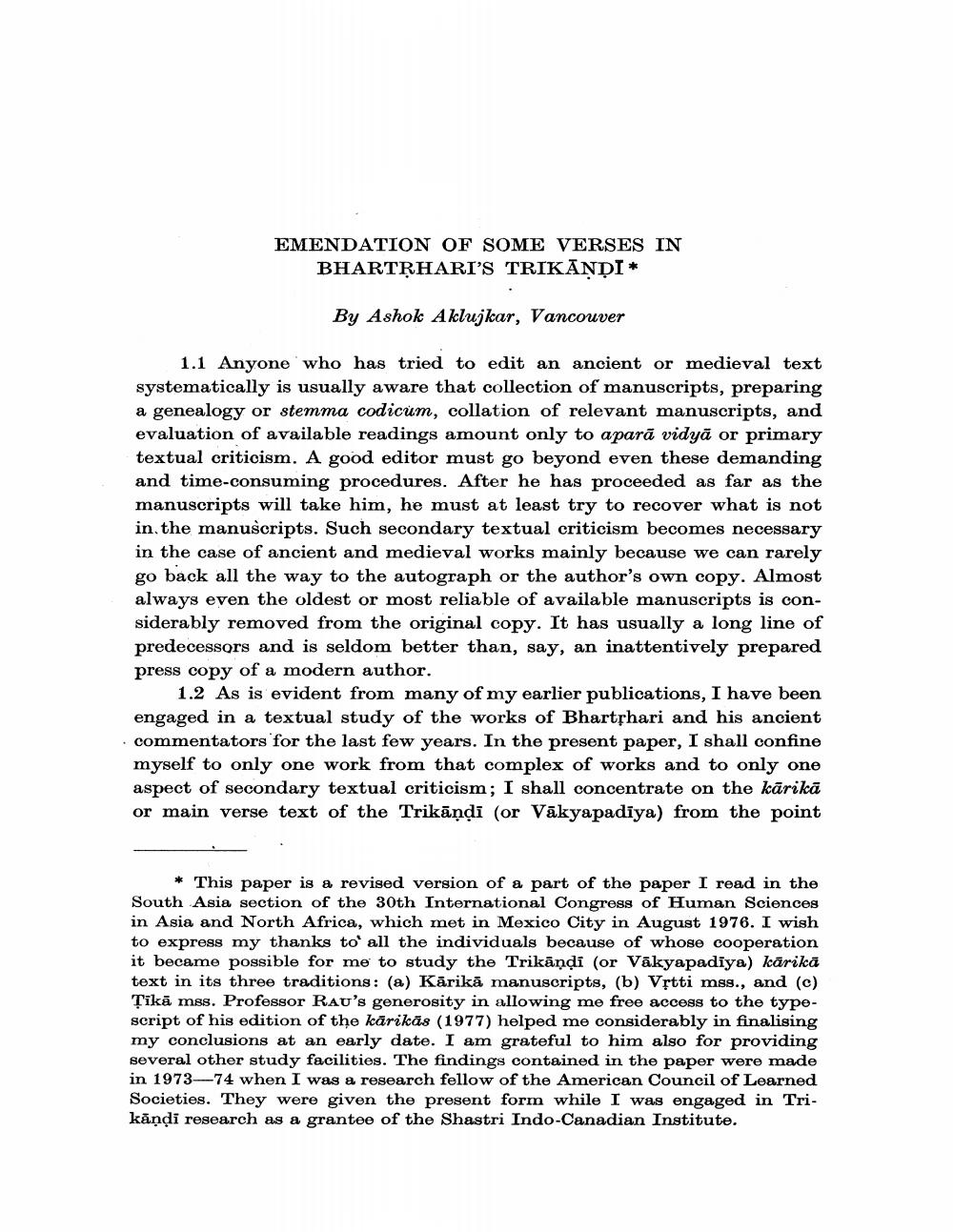Book Title: Emendation Of Some Verses In Bhrtharis Trikandi Author(s): Ashok Aklujkar Publisher: Ashok Aklujkar View full book textPage 1
________________ EMENDATION OF SOME VERSES IN BHARTṚHARI'S TRIKĀNDI* By Ashok Aklujkar, Vancouver 1.1 Anyone who has tried to edit an ancient or medieval text systematically is usually aware that collection of manuscripts, preparing a genealogy or stemma codicum, collation of relevant manuscripts, and evaluation of available readings amount only to apară vidya or primary textual criticism. A good editor must go beyond even these demanding and time-consuming procedures. After he has proceeded as far as the manuscripts will take him, he must at least try to recover what is not in the manuscripts. Such secondary textual criticism becomes necessary in the case of ancient and medieval works mainly because we can rarely go back all the way to the autograph or the author's own copy. Almost always even the oldest or most reliable of available manuscripts is considerably removed from the original copy. It has usually a long line of predecessors and is seldom better than, say, an inattentively prepared press copy of a modern author. 1.2 As is evident from many of my earlier publications, I have been engaged in a textual study of the works of Bhartṛhari and his ancient commentators for the last few years. In the present paper, I shall confine myself to only one work from that complex of works and to only one aspect of secondary textual criticism; I shall concentrate on the kārikā or main verse text of the Trikandi (or Vakyapadiya) from the point * This paper is a revised version of a part of the paper I read in the South Asia section of the 30th International Congress of Human Sciences in Asia and North Africa, which met in Mexico City in August 1976. I wish to express my thanks to all the individuals because of whose cooperation it became possible for me to study the Trikāṇḍī (or Vakyapadiya) kārikā text in its three traditions: (a) Kārikā manuscripts, (b) Vṛtti mss., and (c) Tikā mss. Professor RAU's generosity in allowing me free access to the typescript of his edition of the karikās (1977) helped me considerably in finalising my conclusions at an early date. I am grateful to him also for providing several other study facilities. The findings contained in the paper were made in 1973-74 when I was a research fellow of the American Council of Learned Societies. They were given the present form while I was engaged in Trikāṇḍi research as a grantee of the Shastri Indo-Canadian Institute.Page Navigation
1 2 3 4 5 6 7 8 9 10 11 12
